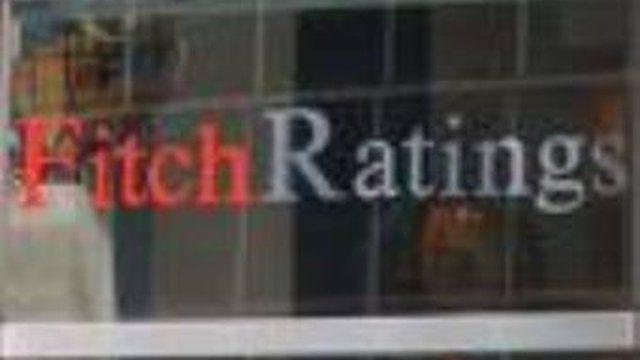Fitch downgrades Russia's sovereign rating from "BBB" to "BBB-", outlook - "negative"

Fitch Ratings Agency during the early hours of Saturday downgraded the long-term foreign and local currency Issuer Default Ratings (IDR) of Russia in national and foreign currencies from "BBB" to "BBB-", of the last stage of investment level.
"The Outlooks on the Long-term IDRs are Negative," Fitch said in a statement.
"The issue ratings on Russia's senior unsecured foreign and local currency bonds have also been downgraded to 'BBB-' from 'BBB'," Fitch said.
"The Country Ceiling has been lowered to 'BBB-'from 'BBB'. The Short-term foreign currency IDR has been affirmed at 'F3'," the agency said.
"The economic outlook has deteriorated significantly since mid-2014 following sharp falls in the oil price and the rouble, coupled with a steep rise in interest rates. Western sanctions first imposed in March 2014 continue to weigh on the economy by blocking Russian banks' and corporates' access to external capital markets. Having grown by just 0.6% in 2014, Fitch now expects the economy to contract by 4% in 2015, compared with our previous forecast of minus 1.5%, as steep falls in consumption and investment are only partially offset by an improvement in net exports, driven by a sharp drop in imports. Growth may not return until 2017," Fitch said.
"Per capita income in dollar terms is likely to shrink by over one-quarter or one-third in 2015, illustrating the blow to national income and debt tolerance from the oil price shock and ruble depreciation," the agency said.
"International reserves, the sovereign's stock of liquid foreign assets, have fallen faster than Fitch expected and they remain on a declining trend," Fitch said.
"Renewed intervention to support the ruble, whether by the Central Bank (CBR) or the Finance Ministry, could further reduce reserves, as would rising levels of dollarization in the face of financial sector instability. Renewed bouts of chronic exchange rate volatility would also raise the spectre of exchange controls. The authorities continue to rule out capital controls but have applied moral suasion, compelling state-owned exporters to convert foreign exchange revenues into rubles, for example," Fitch said.
"Structural factors are weak relative to peers. Commodity dependence is high: energy products account for almost 70% of merchandise exports and 50% of federal government revenue, exposing the public finances and the balance of payments to external shocks. Governance is a relative weakness: Russia scores badly on World Bank and Transparency International indicators, for example. Russia's current predicament has done little to hasten the onset of a more liberal economic policy agenda and raises the risk of greater isolationism. The business environment has long hampered diversification outside the energy sector," it said.
"Future developments that could individually, or collectively, result in a stabilization of the Outlook include a reduction in tensions with the international community, resulting in an unwinding of sanctions and renewed access for Russian entities to international capital markets and a sustained recovery in the oil price, coupled with an easing of macroeconomic and financial stress," Fitch said.










